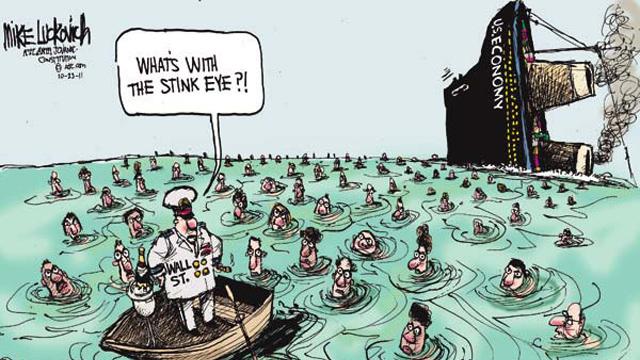
According to a new report from the Bank of International Settlements — which provides research to the world’s central bankers — bailed out banks in both the U.S. and around the world continued to be riskier than non-bailed out banks, even after they received taxpayer dollars during the financial crisis of 2008:
We find no evidence that rescued banks reduced the riskiness of their new lending more than non-rescued banks in response to the crisis and the public rescues. Even as lending volumes decreased across the board in 2009, rescued banks continued to write riskier syndicated loans, as reflected by their involvement in the leveraged loan segment and in the spreads charged on the facilities that they originated. We also find, unsurprisingly, that the syndicated lending of banks that later received a bailout was riskier before the crisis than that of non-rescued institutions. [...] During the crisis, rescued banks did not reduce the riskiness of their new syndicated lending compared to their non-rescued peers. In fact, our results suggest that the relative riskiness of their lending increased.
As Reuters columnist James Saft noted, “This is both astounding and totally predictable. Astounding because it was so clear that those risks were not just foolish but destructive. Predictable because of course the banks realized that they had not been just lucky but had been given a special exemption from death which will be very hard to revoke.”
Despite this and other clear evidence that the banks are totally uninterested in learning any lessons from the financial crisis, Republicans are attempting to bog down or repeal the Dodd-Frank financial reform law.
But several prominent banking executives have said that the size and complexity of today’s mega-banks makes them unmanageable. A recent report found that the financial crisis cost the U.S. economy $12.8 trillion.
3 WAYS TO SHOW YOUR SUPPORT
- Log in to post comments











